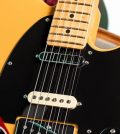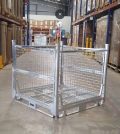Boosting Efficiency and Precision with Self-Tapping Step Drill Bits
At some point, every tradie, chippie, and fabricator finds themselves needing to re-bore a hole. On time-sensitive job sites, however, stopping to widen existing boreholes is a major process constriction that can be difficult to account for within a set production schedule, and is almost guaranteed to result in workflow delays and cost overruns.
The challenge that every craftsman and business owner ultimately faces in these circumstances is ensuring that with the first drilling operation, every hole is bored to the correct depth and diameter that the schematic or build sheet calls for. If you care about efficiency, you can’t afford to ignore the productivity that could be lost due to the need to re-bore holes, which is why now is the right time to buy drill bits that are designed specifically for exact borehole diameters.
Contents
Step Drill Bits Make it Possible to Drill the Perfect Bore Every Time
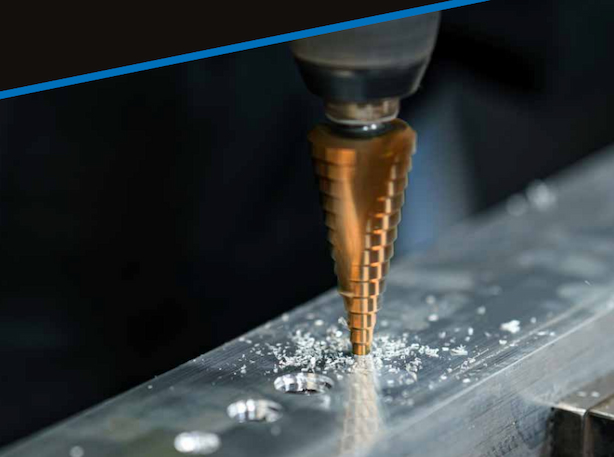
When it comes to precision hole drilling, clearance, and chamfering, high-quality self-tapping step drill bore bits are what you want for clean, accurate boreholes every time. Stopping to perform multiple drill bit changes, or worse, repeating an entire drilling process to re-bore a run of existing holes is as tedious as it is inefficient; but with the correct-sized step bit, you’re able to bore any hole instantly to the proper depth and diameter in a single operation. They’re the perfect boring tools to have when you’re working in high-speed conditions, allowing you to drill multiple hole sizes with a single bit, as well as reduce your costly inventory of conventional twist-type bits.
Premium quality step drill bits are easily identified by their short shanks and conical shape, can be used with either handheld or press-type drills, and are ideal for boring, re-boring, and deburring holes. And with configurations that include as many as 14 bore sizes, and both metric- and standard-sized bores to choose from, these special bits excel at:
- Boring fast, clean holes in all types of wood, metal, or plastic working materials;
- Working in tighter quarters than would normally be possible with longer bits; and,
- Shaving away a thin layer of material from the working surface without warping the material.
Step bits are also exceptionally good at performing bevelled-style cuts such as countersinking and counterboring. That makes it possible for cost-conscious businesses to buy step drill bit sets, and stop throwing money into expensive countersinking bit inventories.
High-Speed Coatings Give Step Bits the Edge in Wear Resistance
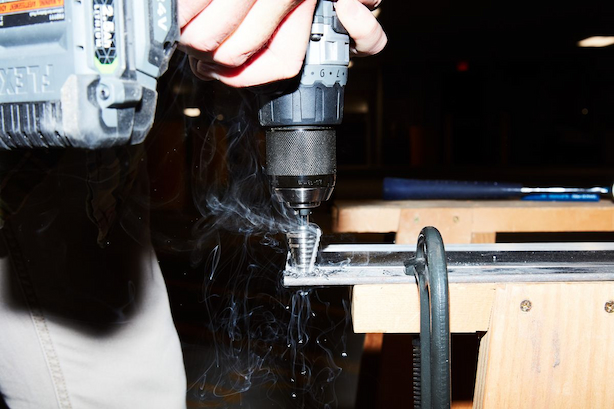
While almost all step drill bits for sale are forged from precision ground high-speed steel (HSS), it’s their extra-tough surface coatings that give them the upper hand when it comes to cutting hard materials like stainless steel and cast iron. This is where the superior wear resistance and low friction qualities of physical vapour deposition (PVD) coatings like Titanium Nitride (TiN) and Titanium Aluminium Nitride (TiAIN) come into their own.
TiN is a yellowish, corrosion-resistant ceramic coating whose advantages for step drills include:
- A microhardness of 2300 Hv on the Vickers hardness scale;
- A 3- to 4-fold increase in wear resistance over ordinary HSSs at a thickness of 1-3 µm; and,
- Thermal resistance up to 600°C.
TiAIN is a violet-grey ceramic surface coating of Aluminium Oxide (Al2O3) added to TiN whose remarkable molecular bonding has the ability to repair itself after heavy usage. This affords a TiAIN-coated step drill bit a virtually limitless degree of protection from wear, together with its other core benefits, which include:
- A microhardness of 3300 Hv on the Vickers hardness scale;
- Thermal resistance up to 900°C; and,
- A 10-fold increase in wear resistance over ordinary HSSs at a thickness of 4 µm.
Make no mistake: the coatings used on today’s step drill bits provide some of the highest levels of high speed and high-temperature durability found on any type of modern rotary or cutting tool. And it’s these coatings that enable the flutes (the spiral grooves around the bits) to do the job they do without binding or snapping under pressure.
Flute Designs That Make Precision Cutting Effortless
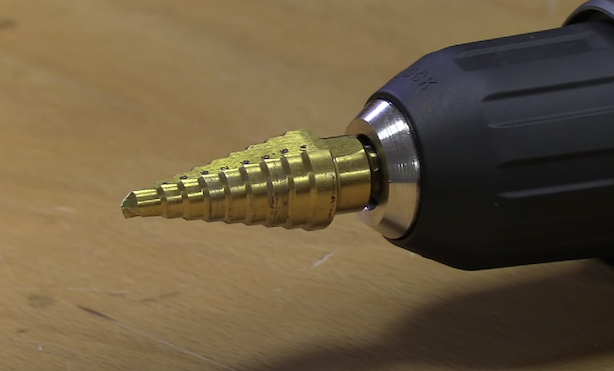
Although fluting is the most important technical aspect of any type of drill bit, it’s especially important for step bits. Unlike twist-type bits, the unique functionality of step bits means that they have to be extra effective at capturing and evacuating drilling debris without pulling too aggressively on the working material itself. It’s a delicate balance even with the low-friction coatings, which is why you’re able to buy step drill bits with a choice of either spiral, straight, or double fluting.
- Spiral fluting. Designed for thick working materials like stainless steel and iron, spiral fluted step drills for sale features a 135° leading edge rake angle that forces the evacuation of chips, shavings, and other swarf material before they’re able to allow excessive heat to build up.
- Straight single fluting. Straight single fluted bits provide gentler pulling action, and are designed to evacuate swarf from thinner and softer working materials like aluminium or plastic laminates that might be prone to warping or bending under more aggressive spiral fluting.
- Straight double fluting. Straight double-fluted bits are crafted to cut with the same moderated drawing action as their single-fluted siblings, but the inclusion of an additional flute provides a level of improved cooling that helps them start faster, and be more effective in higher-speed operations than ordinary straight-fluted variants.
Crucially, both spiral and straight-type flutes are capable of performing extremely precise cuts without damaging working surfaces or materials. And with their choice of either straight or hex-shaped shanks, you never have to worry about them slipping or walking once they’ve started cutting.
The Final Word
At the end of the day, step bits are the most efficient way to put an end to time-consuming bit changes, re-bores, and costly consumable bit replenishments. And when you consider that a single step bit can effectively replace up to 14 conventional bits, they offer a value proposition that lets you maximise every drilling task.
High-quality self-tapping step drill bits are the tools that every tradie, general contractor, and professional fabricator needs to increase their productivity. They’re must-have cutting tools for today’s cost-conscious, high-performance jobsites.




